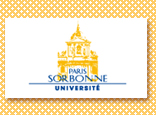|
| Accueil
> Cours
et séminaires > DEA
> Méthodologie : Information skills |
| |
Ressources DEA-MAN 413
Information skills |
| |
|  Information
skills, Section II Information
skills, Section II
SEARCH STRATEGIES: Oxlip website
Course objective: to acquire search strategies
and evaluation skills |
|
| |
| Steer your course through the website |
| |
|
|
| |
| |
|
|
| |
| |
|
| |
|
|
| Cette page est valide
HTML
4.01, CSS2
et accessible A. |
|
|
|
|
 |
Rechercher |
|
| |
|
|
| |
 |
| |
|
| |
| |
|



